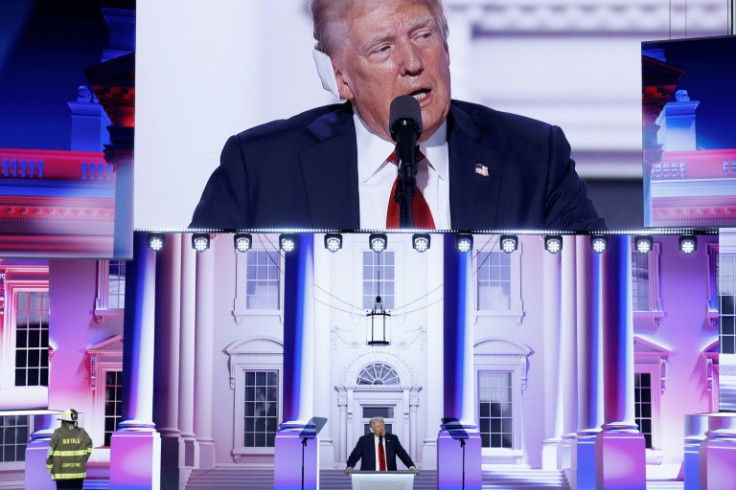
Just five days after surviving an assassination attempt, former President Donald Trump formally accepted the Republican party's nomination. Now the official candidate, he began by delivering a message of "confidence, strength, and hope," on the final day at the Republican National Convention, but quickly returning to his usual rhetoric.
"The discord and division in our society must be healed. As Americans, we are bound together by a single fate and a shared destiny. We rise together. Or we fall apart," Trump said in his speech. "I am running to be president for all America, not half of America, because there is no victory in winning for half of America."
Trump focused the first half of his speech in his assassination attempt, driving the focus away from central issues to his campaign, such as immigration and the economy, and instead, calling for unity in the country, promising voters "the four greatest years in the history of our country."
But despite his pleas, the second part of his address went back into his usual grievances and was characterized by many moments going off the teleprompter, stepping away from his prepared speech, complaining about the current administration and mostly refraining from calling President Biden by his name.
When it came to immigration, although initially hesitant to fully dive into the topic, the former president eventually returned to his usual rhetoric on the issue, claiming an "invasion" of migrants into the U.S., and that newcomers are stealing jobs from the "Black population."
"We also have an illegal immigration crisis, and it's taking place right now as we sit here in this beautiful arena, some massive invasion at our southern border that has spread misery, crime, poverty, disease and destruction to communities all across our land," Trump said.
In relation to health, for instance, studies have found that migrants do not spread disease. Instead, many help fight it, as migrants make up a significant proportion of health care workers.
A 2018 study in the Journal of the American Medical Association found that 16% of health care workers in the U.S. were born somewhere else, including 29% physicians, 16% of registered murders, and 20% of pharmacists, NBC News reports.
As the convention ran close to midnight, Trump went back and forth on the immigration issue, intertwining his messages with other focuses such as the Russia-Ukraine war, election fraud and taxes, making his speech look more like a regular campaign rally.
He showed a chart that shows the lowest level of illegal immigration in history toward the end of his term. But while his policies certainly had an impact, that was also the height of Covid, The New York Times clarified.
The now GOP nominee, also promised to finish the wall across the U.S. border, which he claimed is nearly finished, as well as the biggest deportation operation in U.S. history, despite the consensus among immigration experts and former homeland security officials being that logistically, legally, and bureaucratically, it would be virtually impossible to carry out in one presidential term.
© 2025 Latin Times. All rights reserved. Do not reproduce without permission.




